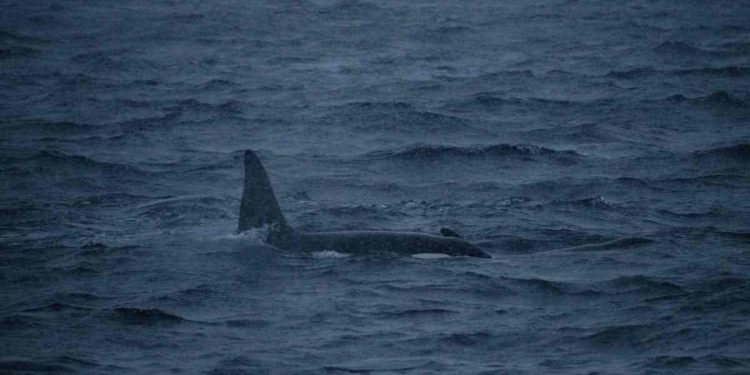In a baffling marine mystery, scientists from Russia have delved into the strange case of a female killer whale (Orcinus orca) discovered stranded on a beach in the Commander Islands of the Bering Sea, in the Russian Far East, in 2020.
What makes this discovery extraordinary is that The killer whale’s stomach contained not one, but seven sea otters (Enhydra lutris) that had been swallowed wholeaccording to research published in Aquatic Mammals.
Orcas, commonly known as “killer whales,” typically prey on seals, sea lions, dolphins, and even other whales, earning their sinister name of “whale killers.”
Sea otters are not their usual food, which makes this case very unusual. The doctor. Olga Filatova, a cetacean researcher at Moscow State University, told the specialized site IFLScience that while killer whales have been observed harassing sea otters, there have been very few cases of actual consumption.
A rare occurrence: killer whales and sea otters
Additionally, killer whales often tear apart their prey to consume the choicest parts, making the killer whale’s act of swallowing several sea otters whole even more disconcerting. Dr. Filatova speculates that factors such as extreme hungerillnesses or unusual behavior may have led this orca to perform such a rare act.
The enigma surrounding this orca goes beyond its peculiar eating habits. Genetic analysis revealed that the orca belongs to a population known as “Bigg’s killer whales,” which typically inhabit waters ranging from the Aleutian Islands and the Gulf of Alaska to the coast of California.
The Commander Islands are far from this population’s typical territory, raising questions about how it ended up there.
One hypothesis is that the orca learned its atypical feeding behavior, swallowing otters whole, in its original habitat and brought this habit with it. However, the exact circumstances that led to their presence in the Commander Islands remain a mystery.
While many questions about the behavior and migration patterns of this unusual killer whale remain unanswered, the discovery of its remains offers valuable information about marine ecosystems.
Since 2008, A decline in sea otter numbers has been observed off Alaska and the Aleutians. The presence of an orca from this population, involved in such predation, suggests that orcas may be playing a role in hunting sea otters in this region.
This revelation has significance for marine scientists seeking to understand and address these changes in otter populations.
Keep reading:
· Rabid river otter bites man 41 times and attacks dog in Florida
· Grizzly bear attack claims two lives in Canada’s Banff National Park
· Li’i the dolphin, companion of the beloved orca Lolita, finds a new home at SeaWorld San Antonio










